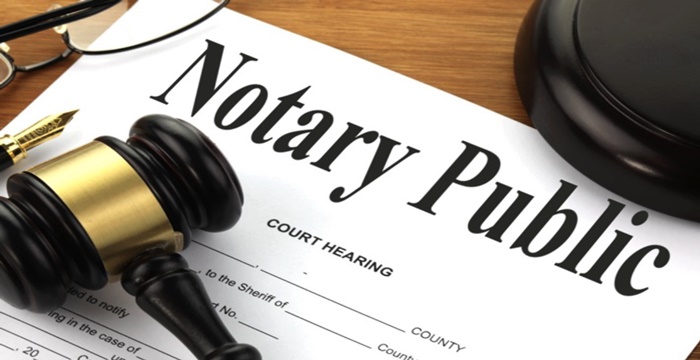This post shared how to get a document notarized in Nigeria, cost of notarizing a document, benefits and requirements of notarizing a document.
INTRODUCTION.
There is a procedure for how to get a document notarized in Nigeria and in every other part of the world. In general parlance and in most parts of the world, a document can only be accepted internationally if it has been notarized or authenticated and its genuineness verified by a Notary Public.
Nigeria is not an exception to the above fact. Notarization of a document is done by a Notary Public. A Notary Public is, therefore, a public official, usually lawyer, authorized to perform acts in legal affairs, in particular witnessing signatures on documents, verification and authentication of documents amidst other functions.
Read: How to Legally Adopt A Child in Nigeria
The Notary Public Act, Laws of the Federation of Nigeria, 2004, is the law guiding the Notary Public and the notarization of documents in Nigeria. This Act clearly defines the roles, the appointment, responsibilities of Notary Public in Nigeria. Whenever a Notary has notarized or certified any document, such a document must be sealed with the notary’s seal or stamp and recorded in a register permanently kept by him.
How to Get A Document Notarized in Nigeria
Only a Notary, if not a Notary Public can notarize a document in Nigeria. A Notary Public is a public official, usually a lawyer who has been authorized by the Federal Government of Nigeria to notarize documents, with other legal abilities contained therein. While a notarized document is one that has been verified by a notary public.
It’s an unhaveable requirement that a person seeking to notarize a document to submit the relevant document to a Notary Public. Appointment of a notary public is a legal function of the Chief Justice of Nigeria. Please see Section 2(1) of the Notary Public Act.
All documents must be notarized by a Notary public in the following ways:
- Submit the document to a Notary Public
- The Notary Public seals and or stamps the document.
- Once the Notary Public seals or stamps the document, the document is said to have been notarized
- Authenticated at Federal Ministry of Foreign Affairs.
- Legalized at the foreign country’s embassy
There is no fixed cost for notarization of any document. A notary public can charge you reasonably in consideration of the number of documents you want him to notarize. No fixed price. However, a notarized document is evidence that can be used also to proof to a competent court that a document is legitimate and not a fake. A document that has passed the validity test of legal notoriety can be recognized internationally, but must be authenticated by the Nigerian Ministry of Foreign Affairs.
Read: Violence Against Women In Nigeria
Documents That Can Be Notarized
These are the following documents that can be notarized:
- Incorporation documents
- Commercial Transaction Documents
- Single Status Certificate
- Declaration of Assets
- Bank Statements
- Sponsorship Letters
- Police Character Certificate
- Birth Certificate or Attestation of Birth Certificate
- Marriage Certificate
- Divorce Judgement and Certificates
- Academic Records
- Authorization letters and many others.
Cost Of Notarizing A Document In Nigeria
There is no fixed cost for notarizing a document in Nigeria. The cost depends on the Notary Public officer involved and the number of documents to be notarized. A person seeking to notarize a document in Nigeria should visit or call a Notary Public of a Law Firm to discuss the cost. Most Notary may charge as little as N10,000($27) for notarization of certain documents and some may charge up to N25,000($70) or more to notarize some types of documents.
Read: LPG (Gas) Filling Station Design and Installation
BENEFITS OF NOTARIZING A DOCUMENT.
The importance or benefits of notarizing a document comprises the following:
- To verify that signatures, marks and copies of documents are true or genuine.
- Helps to prevent forgery and avoid frauds in legal documents.
- The presence of a notary seal in any document confirms for the court that the signatures in that document were placed by a genuine person and it is not fabricated.
CONCLUTION.
It is not mandatory to notarize all legal documents but in some cases notarization of documents is mandatory. If a person refused to notarize a document, which requires notarization, then the validity of such a document will be questionable and may not be accepted for any official purpose by any authority or court of law in case such a document is sought to be tendered as

